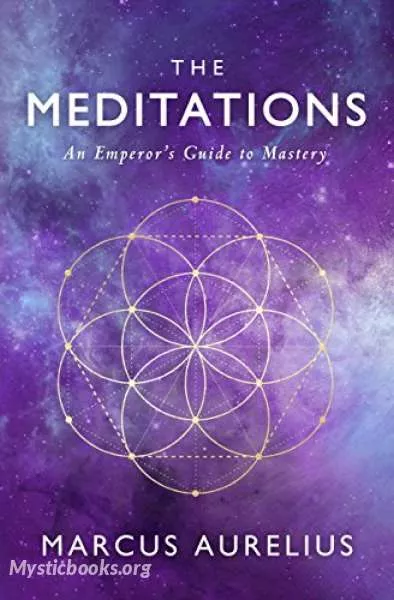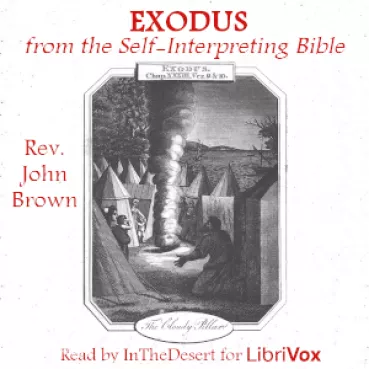
Meditations
'Meditations' Summary
The Meditations is divided into 12 books that chronicle different periods of Aurelius' life. Each book is not in chronological order and it was written for no one but himself. The style of writing that permeates the text is one that is simplified, straightforward, and perhaps reflecting Aurelius' Stoic perspective on the text. Depending on the English translation, Marcus' style is not viewed as anything regal or belonging to royalty, but rather a man among other men, which allows the reader to relate to his wisdom.
A central theme to Meditations is the importance of analyzing one's judgment of self and others and developing a cosmic perspective:
You have the power to strip away many superfluous troubles located wholly in your judgment, and to possess a large room for yourself embracing in thought the whole cosmos, to consider everlasting time, to think of the rapid change in the parts of each thing, of how short it is from birth until dissolution, and how the void before birth and that after dissolution are equally infinite.
Aurelius advocates finding one's place in the universe and sees that everything came from nature, and so everything shall return to it in due time. Another strong theme is of maintaining focus and to be without distraction all the while maintaining strong ethical principles such as "Being a good man."
His Stoic ideas often involve avoiding indulgence in sensory affections, a skill which will free a man from the pains and pleasures of the material world. He claims that the only way a man can be harmed by others is to allow his reaction to overpower him. An order or logos permeates existence. Rationality and clear-mindedness allow one to live in harmony with the logos. This allows one to rise above faulty perceptions of "good" and "bad"—things out of your control like fame and health are (unlike things in your control) irrelevant and neither good nor bad.
Book Details
Language
EnglishOriginal Language
Koine GreekPublished In
Genre/Category
Tags/Keywords
Authors

Marcus Aurelius
Roman Empire
Marcus Aurelius Antoninus was Roman emperor from 161 to 180 and a Stoic philosopher. He was the last of the rulers known as the Five Good Emperors (a term coined some 13 centuries later by Niccol&ogra...
Books by Marcus AureliusDownload eBooks
Listen/Download Audiobook
- Select Speed
Related books

The Blue Aunt by Eliza Orne White
Have you ever wondered what lies beyond the veil of reality? Eleanor has always been fascinated by her aunt's strange behavior. She dresses in blue a...

A Chesterton Calendar by Gilbert K. Chesterton
Go through the year, day by day, with the wit and wisdom of G.K. Chesterton! Compiled from the writings of 'G.K.C', both in verse and in prose, each d...

Psychopathology of Everyday Life by Sigmund Freud
Psychopathology of Everyday Life is a 1901 work by Sigmund Freud, the founder of psychoanalysis. Based on Freud's researches into slips and parapraxes...

Lost -- A Pearle by Mrs. Georgie Sheldon
It is a captivating novel that takes readers on a thrilling journey of mystery and discovery. Set in a time of adventure and intrigue, this book follo...

Your Invisible Power by Genevieve Behrend
Unlock the power to be happy regardless of the things you desire learn to find the happiness within yourself. Your Invisible Power Audiobook by Genevi...

The Labyrinth by Francis Stevens
Prepare to enter a world of mystery and wonder in "The Labyrinth" by Francis Stevens, where reality and imagination intertwine to create a captivatin...

For Love and Life Vol. II by Margaret O. Oliphant
This compelling book delves into the complexities of human relationships and the transformative power of love, guiding readers through a remarkable jo...

Confessions of an English Opium-Eater by Thomas De Quincey
Confessions of an English Opium-Eater is a deeply introspective and influential autobiography by Thomas De Quincey. Written in a majestic neoclassical...

Human Affairs by Vincent O'Sullivan
Step into the labyrinth of the human psyche with "Human Affairs" by Vincent O'Sullivan—a collection of tales that unveil the enigmatic dimensions of h...

Exodus from The Self-Interpreting Bible by John Brown
Embark on a journey of faith, liberation, and divine intervention in "Exodus," a captivating excerpt from John Brown's timeless work, "The Self-Interp...
Reviews for Meditations
No reviews posted or approved, yet...